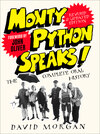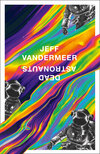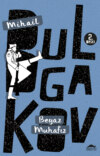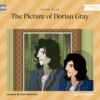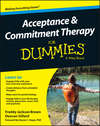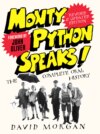Kitabı oku: «Monty Python Speaks! Revised and Updated Edition», sayfa 7
HE WANTS TO SIT DOWN AND HE WANTS TO BE ENTERTAINED
How was the public’s response to your work different from what you’d experienced on your previous series?
PALIN: I suppose the difference was that, partly because of its programming and the time it went out, Python clearly was seen as very much for an adult audience, which is very interesting because nowadays the spirit of Python burns on in ten-year-olds, twelve-year-olds, thirteen-year-olds. So many children love Python. But at the time it was seen as an adult show. I’d never really been involved in an ‘adult’ show, kind of X-rated comedy show, and this seemed to be the image of it.
And also we became sort of the intellectuals’ darling for a bit, written up in The Observer, things like that, which was again quite different from anything I’d done before. The word ‘cult’ was quite soon applied to Python, though we weren’t quite sure what a ‘cult show’ is. It applies to something that is the property of only a very few select people. I’d never been interested in doing that before. Frost Report was a very popular show; Do Not Adjust Your Set was aimed at a popular audience. But Python seemed to fit into this niche of daring, irreverent, therefore only accessible to those of a certain sort of intellectual status, and that lasted for a long time.
So much in television depends on when programmes go out. The BBC labelled the programme – without meaning to – by the time we put it out. We were put out so late at night and people who had to work early next morning couldn’t see it; there wasn’t videos, you couldn’t tape them and run them the next morning if they were put out late at night. Insomniacs and intellectuals were the only people up!
MACNAUGHTON: You do know about Spike Milligan’s remark on the radio once when somebody asked him about the success of the Pythons? ‘Oh,’ he said, ‘my nephews are doing very well, aren’t they?’ Which is a very reasonable thing, because they loved Milligan.
Python would not have been what it was had it not been for
The Goon Show or the Q series.
MACNAUGHTON: Precisely. But would The Goon Show have been what it was were it not for the Marx Brothers? And then would the Marx Brothers have been the way they were were it not for burlesque, and would burlesque have been the way it was were it not for music halls? And so it’s got a wonderful progression, I think.
The trouble is, since Python I haven’t seen anything come up yet that takes its place. And I’m very pleased, because quite honestly I don’t think you can. I guess that’s one of the big pluses for Python, in that nobody can really copy their style – it doesn’t work. I mean, Morecombe and Wise can be copied. But how do you copy [these] guys? I think it would be very difficult to do it again.
CLEESE: My experience is that critics recognize what is slightly original, but very frequently miss what is very original! And if you look back at the reviews of Monty Python’s Flying Circus, they were really not particularly noticeable – nothing remarkable about the reviews for quite a long time. I suspect you would probably get to show nine or ten of the first series before anybody was really writing that something remarkable was happening. A few people got it right away. But critics on the whole did something that they do when they’re insecure: they describe what the show was like without really committing themselves to a value judgment.
GILLIAM: We’d rather be making films that people are passionate about than, ‘Oh, that’s a nice film.’ And Python’s always managed to do that; people are passionate about Python. I think that’s where we’ve always been good. That’s probably the area we should stay in. It’s like comic books; comic book artists and people who deal in comic book all feel like outsiders, they’re never given respect. There’s an amazing skill involved in making a good comic book. The artwork in comic books is brilliant, some of the writing is brilliant – comic books is a really great art form, but it’s not [considered] art. Not literature. It’s this bastard thing hanging out there. And they complain, [but] I keep saying, ‘No, you’re lucky that you haven’t been accepted – keep being angry and outside and doing stuff.’ Because if you become a Keith Haring or Basquiat or any of these people who get drawn into the Establishment, they die, they just freeze up. What’s Keith Haring? His stuff is nice and it’s sweet and it’s cute, it’s all right, but I don’t think when they look back a hundred years from now they’re going to say, ‘He nailed it.’ Except maybe they will: that’s how infantile and silly things had got, that in fact he captured the essence of the whole thing doing just nice, sweet stick figures and nice colours. I don’t dislike his stuff at all, I think it’s nice, but I don’t think it’s Wow!!
I think certainly with comedy, comics, and all that – comics/comedy, we’re stuck with sounding very similar! – that’s outside, and it should stay outside.
MACNAUGHTON: They were quite surprised by the positive reaction to the Gumbys, these daft people with the handkerchiefs tied on their heads. When they walked into the studio one time, what happens but the whole front row of the audience had handkerchiefs tied around their heads! Gumby just had to appear and there was a roar of laughter.
GILLIAM: I’m the luckiest one because I’m the least known, the least recognized. And it’s nice to be recognized occasionally. I get enough, somebody saying ‘Hi,’ just to assuage my fading ego: ‘That’ll keep me going for a month or two.’
And the whole thing is so ephemeral, it’s just incredible how thin the line is between being known and not known. There was one day after we’d done a chat show here after one of these series, my wife, Maggie, and I were shopping somewhere, and someone all excitedly started shouting, ‘Hey, hey, look who’s here!’ Oh fuck. It’s this piece of meat that is being attacked by all these excitable people who had just seen you on television the night before. And then you realize, ‘Thank God I’m not John.’ It’s an awful job to walk down the street and be John Cleese, because you can’t escape from it!
CLEESE: You know when you do something and it catches on, and everybody likes it, then for the next eight years as you creep out of your house at half past eight in the morning: ‘Oi, do your funny walk there, John!’ Just so painful!
THE PYTHONS THROUGH THE LOOKING GLASS
APART FROM THAT HE’S PERFECTLY ALL RIGHT
I asked each of the Pythons what they thought the greatest contributions were of their fellow members to the group, and then to describe how the disparate personalities (sometimes in conflict with one another) merged to become a thriving whole which in many ways was far greater than the sum of its parts.

Cleese, the icon.
THE CONTROL FREAK
It Certainly Wouldn’t Be Worth Your While Risking It Because I’m a Very Good Shot; I Practice Every Day … Well, Not Absolutely Every Day
PALIN: Well, John’s quality, apart from just being very, very focused and disciplined as a writer, was a great economy in his writing – very funny and very tight – and that I think comes from his legal background.
Apart from the superb sense of comic timing – the ability to deliver a line – John was able better than any of us (apart from perhaps Graham) to show this wonderful process of an Establishment character undermining the Establishment. The rest of us could be dismissed as being your sort of irritants, the smaller person getting in the way; or the way our characters were played could sort of be dismissed. [But] the great thing about John’s characters was he epitomized the ruling establishment of Britain; he looked like the bishop or bank manager, a man of authority. He looks just right, and to be able to undermine it as successfully as he did from that perspective was really wonderful and I think the greatest strength of John. It meant that people were really genuinely taken aback when John would be in full blow of invective. His is not just a purely comedic character; this is an archetypal English, respectable, responsible person physically attacking from within. It seemed to me that was an ability that John had, because we all felt he wasn’t acting the part, he was it. That’s the best analogy – he was a headmaster who had gone mad.
John is a very strong, forceful character and within the group he was probably the one who would have the most obsessive desire for structure, both within the sketches and in the way we wrote, the way we worked. John would want to know when we were going to finish, what time we were going to do this, how we were going to do that. We needed that structure, so that was good, as it gave the others who were perhaps more languid something to react against.
As well as having a great time, you had to be businesslike. Not that we were unfocused, but for instance the rest of us were far more likely to say, ‘Let’s stop now and go out and have a nice lunch.’ And John would have to meet somebody, he’d go out and do that and be back at exactly 2:15. So in a sense John forced us to organize ourselves pretty thoroughly, which I think was a good thing, but it didn’t impinge on the comedy. There was never a sort of feeling of, ‘God, here he is, Mr Bossy Boots.’ I mean, he was bossy, but he delivered.
GILLIAM: John’s a hard one. John loves manipulating and controlling; he’s only comfortable when he’s doing that. When he lets go of control and just starts hanging out, he can only do it for a short while and then the panic sets in, it really sets in. I mean, after we did Holy Grail we were in Amsterdam all together promoting it, and we went on a pub crawl one night, and we were having a great time, all of us. And we were getting drunk and speaking openly, all the things that a group can never [otherwise do], and it really was getting funny, and we were saying a lot of things that needed to be said in a really jolly, drunken way. And at a certain point John just had to pull back from it; he was relaxing, he was letting down his guard too much, and he went back off wherever he went. It was really weird. And it was a pity because we were having a good time, and John was having a good time, and he couldn’t allow himself to not try to be in control.
After the first series, John had taken a house down in Majorca, and said, ‘Come on down.’ There was one night we went into Palma and we were sitting there having this silly time, like two guys – ‘Yours isn’t so good looking,’ you know, like two kids laughing, trying to pick up girls and failing miserably and all that – and we were driving back and the sun was setting, and there was this castle on the hill. I said, ‘Oh, shit, let’s drive up there!’ VVrrmm!! Knocked on the door of the castle, it was locked, it was after hours. I said, ‘Let’s break in, let’s climb in.’ So we went around, climbed over the wall and eventually got in. There were sheep grazing in the middle of this castle and we chased them around, it was like really, really good fun – and then John closed down again. It was like one of the few times I’ve seen him just totally relaxed. But he can only do it for a limited period, and then he’s got to get back in control.
I think his attempt to try and control things gave a sense there was always something one could go against – his need to control [versus] our need to not be controlled, and that’s such an interesting dynamic. I don’t know if that’s exactly the best use of everybody in the group!
But John, as I said, was the one we could all struggle against all the time, one thing we always agreed on: ‘He’s going to try this.’ ‘Oh, fuck him!’
Did he serve as a substitute for the BBC,
or a potential audience, that you had to win over?
GILLIAM: No, it wasn’t about that he represented anything larger than himself, or that he was right or wrong. It was about him trying to get his own way. And that’s why he and Terry were at opposite ends, they both wanted their own way. They were these two poles, sort of psychic emotional poles that were at opposite ends – Terry’s passion and John’s intellectual need to control – and that set up this really weird and interesting dynamic.
JONES: When we first started I remember John saying, ‘We don’t want to have personalities in this group, it’s going to be the group.’ Which is why we didn’t sort of have our names and faces up at the end of the show. It was a group undertaking, and that very much came from John’s feeling, I don’t know quite why. He had just come out of At Last the 1948 Show, where somehow Marty Feldman had been perceived to be the star, and Marty had gone on to do his own series, and it was somehow some sort of reaction, against the cult of the individual kind of thing. But nonetheless I think the original offer was from the BBC to John to do a show, and then he came to us and it sort of grew up around him like that.
John was useful to have as your front man; he could deal with the bureaucracy, though there wasn’t that much bureaucracy in those days. John’s contribution was always being kind of a rallying point, a spokesperson. He always had the authority; when it came to dealing with the BBC, we always felt they took John seriously. Partly because he was best known; it’s partly his personality as well. Everybody always feels that John’s really the prime minister in disguise.

Colin ‘Bomber’ Harris wrestling Colin ‘Bomber’ Harris, from Monty Python Live at the Hollywood Bowl.
SPLUNGE!
I’d Like to Answer This Question If I May in Two Ways: Firstly in My Normal Voice and Then in a Kind of Silly, High-Pitched Whine
JONES: I always loved Graham as a performer, from when I first saw him in Cambridge Circus and then in At Last the 1948 Show, because you could never quite see what he was doing. I mean, John I dearly love as a performer, but from the moment you first see John you know where John is; Graham was always very intangible.
I think Graham always played everything as if he didn’t think anything was funny, [as if] he didn’t see the joke in anything, really, which was just wonderful. Which was why he worked for the leads in Holy Grail and Life of Brian, because he played it so straight and sincerely and seriously.
PALIN: The characters that Graham played were again great Establishment characters. He would play a colonel exactly right and add this wonderful mad streak throughout. I think Graham took more risks than John, and I think when they wrote together, although John I’m sure put together 80 per cent of their sketches, the 20 per cent that Graham put in was the truly surreal and extraordinary. Graham had a wonderful gift with words; I’m sure ‘Norwegian Blue’ for a parrot would be Graham’s. There’s something about it: a Norwegian Blue parrot – that just sounds like Graham.
Graham as a performer had a quiet intensity which, if you look at all of his performances, quite unlike any of the rest of us, is very convincing whatever he does. That’s why he was so good as Brian, so good as Arthur; here was a man who genuinely suffered, you know, trying to get through this world – he just happened to be a king, it wasn’t his fault – he was trying to do his best, and all these people around him were just mucking him up. One really felt for him. Graham could portray that very well, partly because I think he was a little nervous as a performer, because he took to drink at one time. By Life of Brian he had given it up, and he didn’t need that, but he was always slightly nervous about it. There’s a concentration in the way Graham does things which looks good, it comes across as very natural and very right.
CLEESE: Graham was fundamentally a very, very fine actor. He could do very odd things, like mime, and he did a very funny impression of the noise made by an espresso machine, things like that. He was a really, really good actor. But to understand Graham you have to realize he didn’t really work properly. If he was a little machine, you would take him back and somebody would fiddle with it, and then it would come back working properly. So he was a very odd man; he was in many ways highly intelligent and quite insightful, in other ways he was a complete child, and not someone who was really any good at taking any sort of responsibility and discharging it.
His best function, and the reason that I wrote with him all those years, is that we got on pretty well. We laughed at the same things, we made each other laugh. And he was the greatest sounding board that I ever worked with. When Graham laughed or thought something funny, he was nearly always right, and that’s extraordinary. For example: when we were writing the ‘Cheese Shop’ [sketch], I kept saying to him, ‘Is this funny? Is this funny?’ And he’d go, [puff puff on his pipe] ‘It’s funny, go on.’ And that’s really how the ‘Cheese Shop’ [sketch] was written as opposed to just being abandoned, because I kept having my doubts. He was a wonderful sounding-board.
And the other side of that was that he was very disorganized – I mean we were all a bit disorganized, but he was really disorganized, and really fundamentally very lazy. His input was minimal; I remember working with Kevin Billington on a movie that turned out to be called The Rise and Rise of Michael Rimmer. After a couple of sessions, Kevin said to me very quietly, perhaps on a lunch break when Graham had gone to the bathroom, ‘Does Graham usually make so little contribution?’ And I remember being quite surprised by the question, because I’d got used to the fact that he made so little contribution.
He didn’t say very much, but when he did say something it was often very good. But he was never the engine; someone had to be in the engine room driving something forward, and then Graham would sit there and add the new thought or twist here or there, which is terribly useful. But I remember saying to somebody once that there were two kinds of days with Graham; there were the days when I did 80 per cent of the work, and there were the days when he did 5 per cent of the work.
To give you a real example of how bad it could be: when we finished the first series of The Frost Report in 1966, David Frost gave us £1,000 to write a movie script. With the money we went off to Ibiza, and we took a villa for two months and decided to write there, and a whole lot of friends came and stayed with us and passed through, and that is when Graham met David Sherlock. I remember that I would sit inside at the desk writing, and Graham would literally be lying on the balcony outside sunbathing, calling suggestions into the room as I sat there writing.
And the funny thing is I don’t remember being cross about it; I think I just accepted that writing with Graham I was going to have to do 80 per cent of the work and sometimes more. And it always slightly annoyed me when people used to come up to me on Fawlty Towers and say, ‘Well, how much did Connie Booth actually write?’ And I wanted to say to them, ‘Certainly a lot more than Graham ever wrote.’ That used to annoy me, the assumption that because Graham was a man he was obviously making a bigger contribution than Connie as a woman.
SHERLOCK: Graham would have been a very good shrink, because if nothing else he understood what made people tick. And if he couldn’t understand, he would make it his job to find out. And his interview technique, if he was looking for prospective interesting people wanting to join his coterie, within five minutes he could sum somebody up and sort them out.
However, I think he was far less astute financially than Cleese, who had a great many friends who were accountants – hence a lot of the sketches! – but he learned from them. Sadly those sort of people bored Graham, I don’t think he was even interested [in connecting]. That’s why he lost money while others were gaining.
One of the most delightful sounds I’ve ever heard was Graham and John writing. This was in the days when we lived in Highgate in the Seventies. I would often be preparing food for our large nuclear family (who could be anything from three to four to ten on an evening sometimes, depending on who Graham invited back from the pub or whatever). Part of my life consisted of keeping the household kicking over. I didn’t do it very well, but it was fairly Bohemian anyway, so it didn’t matter too much. But in the morning if I was making coffee for them, I would often hear a delighted shriek as they hit on some outrageous idea, often followed by the thudding of bodies hitting the floor, and the drumming of feet like a child with a tantrum, only this was the sheer delight of the idiocy of the idea, which would absolutely floor either the people at the BBC or the watching public. And they would howl screaming with laughter before they could even get back to finishing the sketch. Sometimes Gray [Graham] would go off to the pub for lunch, and John would say, ‘No, I’m not coming,’ and he would do his Alexander technique exercises1 on the floor and would want to borrow a couple of books to put under his head. I often wondered in fact whether he needed that technique to get over the stress and strain of rolling about and falling to the floor!
Graham’s work with John would start off with apparent normality and then slowly chaos starts to seep in; all the time they try to drag the character back to reality or they try to keep control of whatever it is, but eventually it ends in chaos. I always see most of their classic sketches to be about that. One thing that was very important to them was a concrete time and place – even the maddest sketch had to have solidity, a reality. The sets were as realistic as the budget would allow and so were the costumes.
They had some extraordinary ideas when they were working to pressure; everyone knew they had so many sketches to bring to the table at the end of their writing time, half or two-thirds may be completely scrapped. Well, in their case, they would often flip through a paper while starting a very, very late morning. Mornings would be very testy because sometimes there would be nothing done at all other than playing with crosswords, making umpteen coffees, and searching for an idea for that very first thing. Once they’d got an idea they were off and they could finish the sketch in record time. On a good day, when they were working happily together, they would work from eleven in the morning, have a proper lunch break of an hour, and then work through till four in the afternoon, sometimes six.
But of course Cleese was a great perfectionist; Graham is on record saying that John could spend a day worrying about a single word that was placed in each sketch; as far as he was concerned a sketch was not finished until that word was placed or removed.
Cleese was definitely extremely disciplined. Graham was often seen as a loose cannon. But that’s not entirely true. When I was working with Graham he would be very disciplined, but he could do six things at once, which was pretty amazing. When working at home he could often answer the telephone in the middle of writing a sketch with a line half-finished or not even written down, and I often as the scribe would find myself pen poised. He could come straight back to that line having had an extremely complex conversation with an agent or whatever, and yet the whole shape of the sketch so far (even though it was very often with three wheels) was [still] in his head.
But very often it was Graham who would absolutely throw John by turning a sketch on its head or literally introducing some extraordinary character or even an animal. It’s very interesting, many of the more bizarre sketches such as the ‘Pet Conversions’ sketch, where they’d be doing absolutely hideous things to small furry animals (‘Terriers make lovely fish. Legs off, fins on, stick a little pipe through the back of its neck so it can breathe, bit of gold paint …’), have been Cleese and Chapman.
GILLIAM: Graham’s contribution was greater than I think John pretended in a sense; he was so frustrated writing with Graham, yet Graham would make those leaps that nobody [else] John has worked with has done. Graham was just on another planet at times. Suddenly he’d say, ‘Splunge!’ What, splunge? And after that, you had to then deal with it; [it became] part of the comedy equation: E = mc2splunge.
Graham was there and he had to be dealt with in some way. And that’s what was so interesting in the end, becoming the best leading man of the group. He was the one on films who was the straightest in a sense, he just had a really interesting presence there.
SHERLOCK: I think in his biography [A Liar’s Autobiography] it was plain that he was this extraordinary mixture. He came from a very dedicated family. Their devotion to duty – it’s a very old-fashioned term, and it’s almost died out as a human quality – was (and still is) very strong. In some ways it was something [the Pythons] sent up.
Graham was a darn good sportsman. He was a good runner, he played rugby, he loved climbing mountains particularly. Graham was a very different mixture altogether from this rather reflective [image]. My mother was terrified of him. She said, ‘He just sits there smoking his pipe not saying much and I know he’s taking it all in, every word! I know it’s all going to come out on the television.’ So that’s your average sort of middle-class attitude to what Graham was like. But yes, there were definitely two sides to his character, and the Jekyll and Hyde side, if you like, was very pronounced; it’s one reason why he drank as much as he did, because he was very shy, and he knew that his shyness could totally override everything unless there was some way of dealing with it.
Graham was fairly notorious as a boozer through the Seventies, and yet he could often start work eleven in the morning with a large tumbler of gin and tonic beside him and work through the whole day apparently sober, absolutely totally undetectable. He was a gentleman drunk, rather like Jimmy Stewart in Harvey, sort of gentle. The whole fun of that movie is that Jimmy Stewart is actually drunk all the time and yet you’re never quite sure. That was the same with Graham.
When did his alcoholism affect his work?
SHERLOCK: It did affect his work, recording Python shows. It’s an aspect which really bothered the other guys. One of Graham’s best friends, who was at St Bart’s Hospital with him, became the medical officer (or one of them) at the BBC during the time that Python was being made. He remembers the set for the show – you know how a TV studio works: you’ve got one set and it’s all built so that one doorway leads through into another which is a totally different set when viewed from the right angle behind the flats, the actual scenery, very often there’s a ledge which held the thing together, on which at the end of a recording he could find behind each set at least one tumbler full of gin and tonic still bubbling away. Because there were one or two occasions when Graham’s terror of losing his lines, forgetting them completely, would be so much that he would freak out. It is after all every actor’s nightmare, this thing of losing lines. Graham did it once so spectacularly that I think he had something like forty-eight takes. Now in a TV studio that is not funny; with an audience, it’s even more frightening.
When did you first recognize that Graham’s drinking was a major problem?
CLEESE: I have one very, very, very clear memory, and it was the day we were shooting the ‘Upper Class Twit of the Year’ at some big sports arena in North London for And Now for Something Completely Different. Graham for some reason wasn’t there, and we all wanted to check a point in the script, and none of us could find a copy, and Michael said, ‘Oh, Graham’s got a script in his briefcase.’ And Michael opened the briefcase, took the script out, and then did a double take, because there was a bottle (I think of vodka) in the briefcase. And Michael looked absolutely stunned, and somebody said, ‘What’s the matter?’ And Michael said, ‘That was full when we left this morning,’ and it was like quarter past ten, and the bottle was half empty. That was the moment when I realized that instead of needing a bit of a drink now and then, he was seriously into it. But my recollection is that his performing began to get affected in the second series.
JONES: When he was drinking the worst thing would be he couldn’t remember his lines, and Ian would be quite remorseless with him like in the studio shows, and make him go over and do it. I remember doing one sketch where we must have done about twenty-four takes of something, and then we had a problem because when Graham eventually got the line right, the audience cheered; [just listening to it], you don’t know why there’s cheering! We tried taking the cheer off [in the editing room] but we couldn’t quite do it. That was a bit awkward.
I remember one time we were filming out in Glen Coe and Graham had a long speech to do and you knew he wasn’t going to get it. And instead of doing Graham’s bit before lunch, Ian broke for lunch, and of course it was a disaster. You say, ‘Please, you want to do Graham’s bit first.’ But no, no, no, he had to break for lunch. And Ian was also drinking, and so you knew after lunch you weren’t going to get a lot of sense out of Ian, either. And they came back and both were a bit squiffy. Graham couldn’t quite remember his words, and Ian couldn’t think of how to do it without just ploughing on. But instead of just doing little snatches, Graham insisted on doing the whole thing together. It was a nightmare. I think in the end I had to hold my script up so Graham could read.
Ücretsiz ön izlemeyi tamamladınız.
